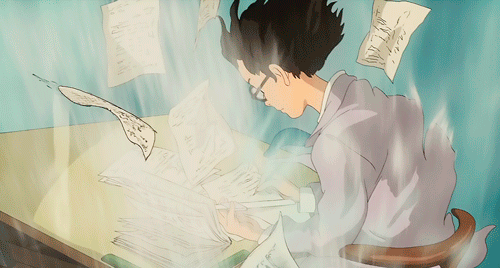It’s that time of year again: room draw. Perhaps you’ve been participating in a few events around campus throughout the year that you haven’t really been all that interested in but participated anyway in hopes of winning a good room draw number. Perhaps you’re researching up on other dorms, judging their location, sanitation, laundry situation, etc. Perhaps you’re interrogating upperclassmen, asking them about their experiences and recommendations. Stress levels run high as we prepare for the end of the year, and this is just something to add the the pile, but don’t worry, we gotchu.
Read & Write

via dakotalink.net
Remember when I shared about Document Converter and never having to do another reading on my own again? Well, Read & Write is sort of like Document Converter, but on steroids. Read & Write is a literacy software created to increase accessibility of class materials. It has so many functions, but today I’ll just be sharing the tools that I think you’d get the most use out of and would probably use on a more regular basis.
INSTALL READ & WRITE LITERACY SOFTWARE.
That’s the first step, and true to its mission of accessibility, it’s free, which I know is a word that can only mean good things for college students.
Are you on-the-go? Use the Speech Maker to convert digital text into sound files.
Do your eyes wander? Use the Screen Masker, which highlights the line your mouse hovers. Well, rather, it tints out the rest of the screen, bringing your focus to that line. Colour and opacity are customisable.
English not your first language? Use the Translator for 50+ languages.
Need to mark up a grossly scanned document? Bless the professors who photocopy readings so that you don’t need to buy a whole textbook. But the scan is read as an image, and this can make it hard to markup. Use the OCR functionality “to convert different types of documents, such as scanned paper documents, PDF files or images captured by a digital camera into editable and searchable data.” (x)
Having a hard time centralizing your markups? Use the Highlighter and extract the colour-coded information into a streamlined outline.
There are so many more tools to aid reading, organizing, study/productivity, and writing, so I encourage you to further explore the functions of Read & Write, and if there’s something that I have or haven’t mentioned, and that you want to know more about or want to know how to use, leave it in the comments, and I’ll get back to you as soon as I can!
Gratitude Experiment, in review
- Spend the first 5-10 minutes of your day practicing gratitude.
- Let someone know you’re grateful for them.
- Smile, even when you’re not in a smiley mood.
- Start the day by telling yourself, “I’M FRICKIN’ AWESOME!”
That last one’s a new one I’m gonna send you off for spring break with. And if you wanna step it up a notch, I challenge you to, at the same time, literally jump out of bed and yell it out loud and proud. Yes, it is a little silly. But what’s wrong with being a little silly? You’re frickin’ awesome.
Got anymore tips for practicing gratitude and adding joy to your life? Share it in the comments!
Midterms
My classmates-now-friends and I have a group chat on Facebook, and just yesterday, one of them asked us, “What was the hardest part of the lab for you?” That question made me really emotional. In my head: So! Many! Things! Not for that lab in particular, but just for life.
The thing is, it was really hard for me to articulate what exactly I had difficulties understanding/implementing. And it was then that I realized the value of good questions. Being able to ask good questions is an underrated skill. If you can find the root of your problem and articulate it as a question, someone can give you a very specific, helpful, tailored-to-you response. But if you don’t take the time to figure that out and ask a very vague question, you can only get a vague answer.
With midterms approaching, I encourage you to ask questions about anything you need clarification for with the time you have left. I understand that it’s not the easiest thing to do. At least for me, the real problem is that I’m too embarrassed to ask my questions “so late in the game.” What if my professor isn’t willing to answer me because it’s about something I should have consolidated weeks ago? Or maybe my professor would be willing to answer me, but she/he’d be secretly thinking in her/his head, “Where has this student been? How can she not understand something so basic? Oh boy, she’s got a long way to go… :/”
Let me hand you a piece of advice from the book I’m currently reading, #GIRLBOSS by Sophia Amoruso, founder and CEO of Nasty Gal:
Own up to your mistakes and apologize for them. Everyone will make a mistake at some point, and the sooner you can admit where you went wrong, the sooner you can start to fix it. Be honest with yourself and your abilities. Many people accept titles that are beyond their experience to only later find themselves up to their neck in problems they can’t solve, and too embarrassed to admit they weren’t qualified in the first place. And what’s the first rule about holes? If you’re in one, stop digging.
So ask those questions unapologetically; if you don’t ask, you won’t receive.
Gratitude Experiment, iii
Even the simulation of an emotion tends to arouse it in our minds. -Charles Darwin, 1872
Smile. Smile even if you don’t feel like you’re in a particularly smiley mood. Smile especially if you don’t feel like you’re in a particularly smiley mood. I’m not saying that you need to be happy all the time or that you need to try to be, because all your feelings are valid and it’s okay not to be okay, but there is a science behind smiling. Don’t take my word for it; give it a try!
Gratitude Experiment, ii
As promised, I’m here with the second challenge of the Gratitude Experiment. Let someone know you are grateful for them. It doesn’t seem like much, but sometimes all a person needs is a little validation. Check out this short video by Kurt Kuenne about “a parking attendant who gives his customers REAL validation — dispensing both free parking and free compliments.”
Gratitude Experiment
What if you spent the first 5 or 10 minutes of your day practicing gratitude? Those 10 minutes you spend lying in bed after your alarm goes off, your brain telling you to get up but your body resisting… What if you just stayed there, laid there? Start your day with happy thoughts.
Come back next week and tell me what you’ve been grateful for. I’ll share some of mine too. And I’ll also be back with another challenge for the week!
Check out this excellent article by Leo Babuta of Zen Habits on The Transformative Power of the Gratitude Habit. My favourite example is: “When I procrastinate with a project, I can look at why I’m grateful to be able to work on that project.”
Prioritise
So it’s the spring semester, but it’s not quite spring yet. Welcome back! We hope you’ve all had a restful winter break, and would like to congratulate you on surviving another shopping week, the blizzard, and the second week of classes.
Done is good!
We’ve survived exam week! WE’RE DONE! WE’RE GOOD! Now that’s enough of that. Safe travels, have a fantastic winter break, and happy holidays! See you in the Spring!
Exam Week survival guide pt. 2
Exam period starts tomorrow. Maybe you did some things you shouldn’t have or you didn’t do some things you should have. Well, you’ve done as much as you’ve done, so there’s no use dwelling on it. Let it be enough. Focus on what you can change.








